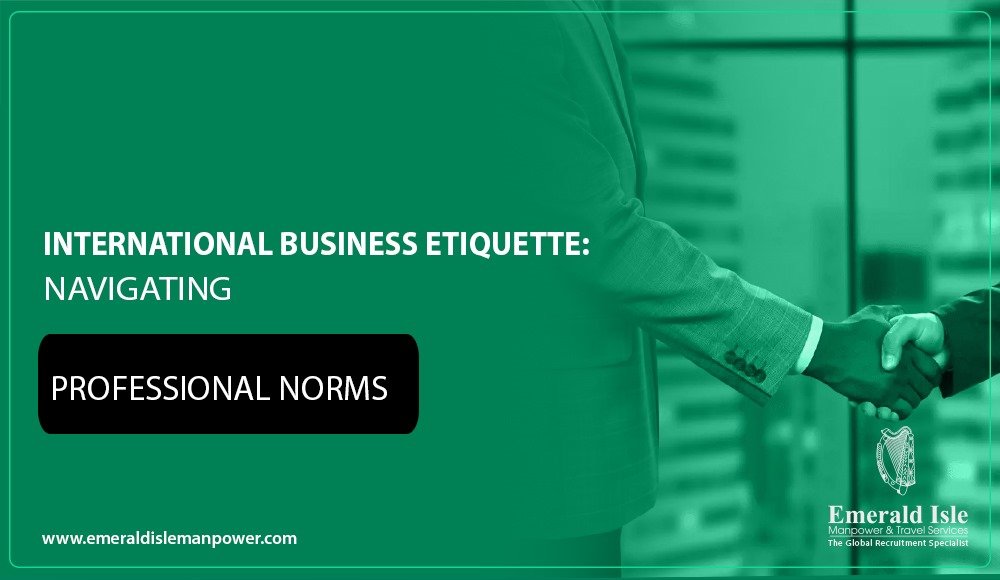In today’s globalized business landscape, understanding and effectively navigating international business etiquette are essential skills for professionals engaging in cross-border interactions. From meetings and negotiations to networking events and daily communication, adhering to appropriate professional norms can significantly impact the success of business endeavors and the cultivation of fruitful relationships. In this comprehensive guide, we delve into the intricacies of international business etiquette, providing detailed insights and practical tips for navigating diverse cultural contexts with confidence and finesse.
Understanding Business Cultural Dynamics
Cultural differences profoundly influence business interactions, shaping communication styles, decision-making processes, and relationship-building practices. Recognizing and respecting these cultural nuances is paramount for establishing rapport and fostering trust with international partners. Before engaging in work activities, take the time to research and understand the cultural norms, values, and customs prevalent in the target country or region. This includes familiarizing yourself with greeting protocols, communication preferences, hierarchical structures, and acceptable forms of address. By demonstrating cultural sensitivity and adaptability, you can bridge cultural divides and lay the groundwork for successful collaboration.
Effective Communication Strategies In Business
Clear and effective communication lies at the heart of successful work interactions, yet cultural differences can complicate communication dynamics. When communicating with international counterparts, strive to convey your message concisely and respectfully, taking into account linguistic and cultural nuances. Be mindful of differences in communication styles, such as direct versus indirect communication, and adjust your approach accordingly. Actively listen to your counterparts, seek clarification when necessary, and avoid making assumptions based on cultural stereotypes. By fostering open and transparent communication channels, you can minimize misunderstandings and enhance collaboration across cultural boundaries.
Navigating Business Meetings and Negotiations
Work meetings and negotiations serve as critical forums for decision-making and relationship-building in the international corporate arena. To navigate these settings successfully, familiarize yourself with the etiquette and protocols specific to the target culture. Arrive punctually for meetings, exchange pleasantries, and adhere to established hierarchies and seating arrangements. During negotiations, adopt a diplomatic and respectful demeanor, focusing on building rapport and finding mutually beneficial solutions. Be prepared to adapt your negotiation style to accommodate cultural preferences for assertiveness, compromise, and relationship-building. By demonstrating professionalism and cultural competence, you can foster trust and credibility with your counterparts, paving the way for successful outcomes.
Professional Attire and Appearance
Your appearance and attire can convey a powerful message about your professionalism and respect for cultural norms. When dressing for work occasions, aim for attire that is appropriate, polished, and in line with local customs and expectations. Pay attention to factors such as dress codes, modesty standards, and the significance of colors and accessories. When in doubt, err on the side of conservatism, opting for neutral and understated attire that commands respect and avoids distracting from the business at hand. By presenting yourself thoughtfully and respectfully, you can make a positive impression and facilitate smoother interactions with your international counterparts.
Cultivating Professional Relationships
Building strong professional relationships is key to long-term success in international business. Take a proactive approach to relationship-building by investing time and effort in getting to know your counterparts on a personal level. Engage in small talk, show genuine interest in their culture and background, and seek common ground to foster rapport and trust. Demonstrate empathy, respect, and integrity in your interactions, and follow through on commitments and promises. Maintain regular communication and seek opportunities for collaboration and mutual support. By cultivating authentic and mutually beneficial relationships, you can navigate cultural differences with grace and build a strong foundation for future work endeavors.
Conclusion
Navigating international business etiquette requires a combination of cultural awareness, communication skills, and interpersonal finesse. By understanding and respecting cultural dynamics, adopting effective communication strategies, navigating business meetings and negotiations with confidence, presenting yourself professionally, and cultivating meaningful professional relationships, you can navigate the complexities of cross-cultural work interactions with grace and professionalism. Embrace cultural diversity as a source of strength and enrichment, and approach international business endeavors with an open mind and a spirit of collaboration. With diligence, cultural sensitivity, and a commitment to excellence, you can build bridges across cultural divides and achieve success on the global stage.








